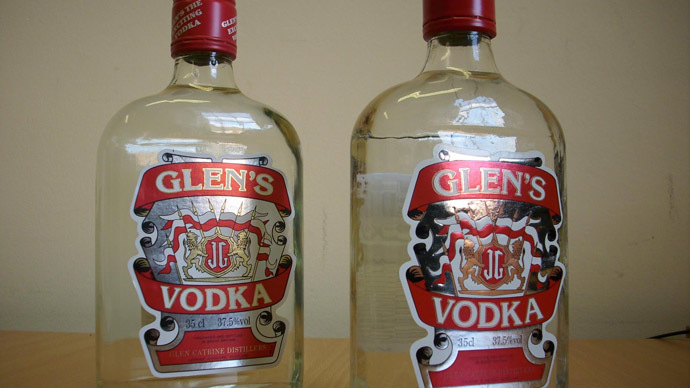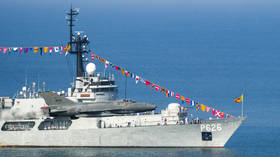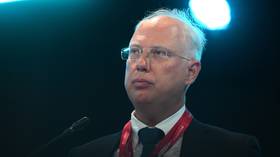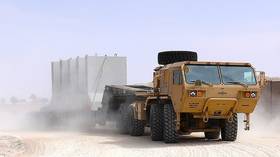Deadly fake vodka hits shelves ahead of New Year's Eve

New Year's partygoers are being warned to take caution, as thousands of fake vodka bottles have hit liquor store shelves just days ahead of the celebrations.
High street retailers and the public are urged to stay vigilant, because the alcohol is often made with chemicals that are found in anti-freeze and car windscreen cleaner.
A number of seizures uncovered thousands of illegal counterfeit bottles containing dangerous chemicals across the UK in recent weeks.
Partygoers throughout Britain are being warned that criminal gangs are trying to take advantage of the increased demand for alcohol over the celebratory season.
A raid on an illicit factory in Derbyshire uncovered 20,000 empty bottles, as well as empty cans of anti-freeze.
In Luton, located outside London, 166 bottles of illegal counterfeit vodka containing anti-freeze and paint remover were seized from three shops. The bottles had been disguised as vodka from popular brands. Officers removed alcohol branded Smirnoff, Glen's, and Kommissar, after they noticed that the labels said "Botteled" instead of "Bottled."
Three samples reportedly contained dangerously high levels of isopropanol – commonly used as an industrial solvent – and butanol, an ingredient in paint remover.
Councillor Aslam Khan of Luton Borough Council said in a statement: "Drinking these chemicals could cause serious illness or even death in extreme cases.”
“Many unsuspecting consumers may think they are buying cheap duty-free alcohol, when they are actually buying fake and dangerous products."
Drinkaware’s chief medical advisor, Professor Paul Wallace, explained in a statement on the group’s website that “commonly used substitutes for ethanol include chemicals used in cleaning fluids, nail polish remover and automobile screen wash, as well as methanol and isopropanol which are used in antifreeze and some fuels.”
“These other types of alcohol can produce similar effects to ethanol in terms of making you feel tipsy. But they are also potentially very dangerous.”
In 2011, the mastermind of a gang that used bleach and methylated spirits to produce thousands of bottles of fake vodka at a remote farm in the UK was jailed.
Investigators believe 165,000 bottles of the fake vodka – which was found unfit for human consumption – were manufactured in 2008 and 2009. Kevin Eddishaw, 53, ran the illicit bottling unit in Leicestershire, and sent the fake-branded Glen's vodka to independent shops across the country.












